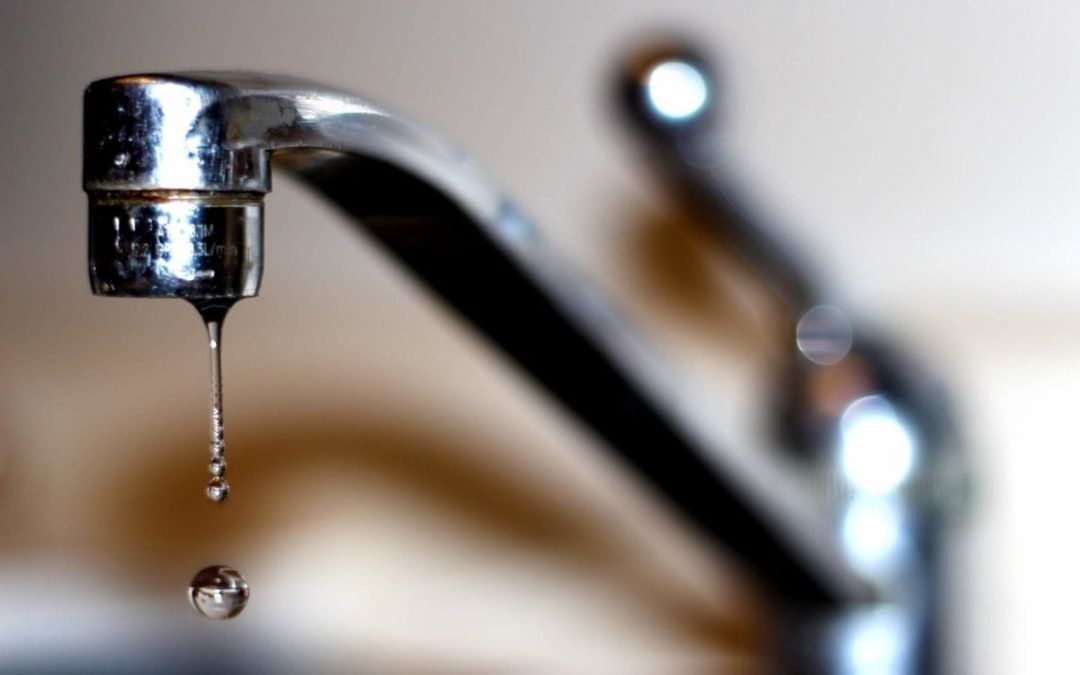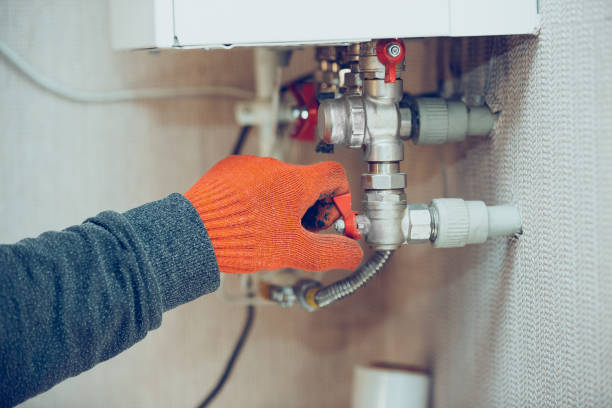Efficient Techniques for Dealing with Low Water Pressure in Your Home
Efficient Techniques for Dealing with Low Water Pressure in Your Home
Blog Article
Do you find yourself looking for advice about 9 Reasons for Low Water Pressure in Your House?

Low water stress in your home can be a discouraging problem, influencing every little thing from showering to cleaning recipes. If you're experiencing weak water flow, there are a number of feasible reasons and solutions to check out. In this guide, we'll discuss typical reasons for low tide stress and sensible actions to deal with the issue effectively.
Intro to Low Tide Stress
Low tide pressure happens when the circulation of water from your taps, showers, and other components is weak than typical. This can make everyday tasks extra tough and less efficient. Understanding the sources of low water pressure is important to finding the ideal service.
Common Root Causes Of Low Water Stress
Faulty Stress Regulatory Authorities
Stress regulatory authorities are in charge of keeping constant water stress in your home. If they malfunction, it can lead to low water pressure or unequal flow throughout the house.
Community Water System Issues
Often, the issue lies outside your home. Metropolitan water problems, such as main line leakages or maintenance work, can briefly minimize water stress in your area.
Pipeline Obstructions
With time, pipes can come to be obstructed with natural resource, debris, or debris, restricting the flow of water. This is a common concern in older homes with galvanized steel pipelines.
Corrosion
Corrosion within pipes can result in leaks and decreased water pressure. Corrosion build-up can tighten water circulation, specifically in maturing plumbing systems.
How to Detect Low Water Stress
Checking Pipelines
Inspect noticeable pipelines for indicators of leaks, deterioration, or blockages. Focus on any kind of unusual noises, such as knocking or rattling pipes, which can suggest concerns within the plumbing system.
Consulting with a Plumber
If you're not able to identify the root cause of low tide stress, consider working with a professional plumber to perform a thorough examination. They can recognize underlying concerns and advise ideal remedies.
Checking Taps and Fixtures
Start by checking the water stress at various faucets and fixtures throughout your home. If the issue is isolated to specific areas, it might indicate localized troubles.
DIY Solutions to Fix Low Tide Pressure
Flushing Hot Water Heater
Debris buildup in the water heater can limit circulation and reduce performance. Purging the container occasionally assists eliminate sediment and preserve ideal performance.
Examining Stress Regulatory Authority
Ensure that the pressure regulatory authority is operating appropriately. Adjusting or replacing the regulatory authority can aid bring back proper water pressure throughout your home.
Cleansing Aerators and Showerheads
Mineral deposits can collect in aerators and showerheads, decreasing water flow. Remove and clean these elements routinely to improve water stress.
Clearing Clogs in Pipeline
For small blockages, attempt using a plumbing snake or chemical drain cleaner to clear obstructions in pipelines. Be cautious when making use of chemicals and comply with safety and security standards.
When to Call a Professional Plumber
If DIY initiatives fall short to deal with the issue or if you believe substantial plumbing troubles, it's ideal to seek aid from a licensed plumber. They have the proficiency and tools to deal with complex issues safely and efficiently.
Safety Nets to Keep Water Pressure
Mounting a Stress Booster
Take into consideration setting up a pressure booster pump to enhance water stress in areas with continually reduced flow. This can be particularly advantageous for multi-story homes or residential properties with high-demand fixtures.
Surveillance Water Usage
Be mindful of water use behaviors and avoid ill-using the plumbing system. Simple changes, such as staggering showers and laundry loads, can assist keep adequate water pressure.
Regular Upkeep
Schedule regular upkeep for your plumbing system to prevent issues such as rust, leakages, and clogs. Resolving small troubles early can assist prevent more considerable fixings later.
Final thought
Managing low water pressure can be discouraging, however recognizing the underlying reasons and applying ideal solutions can bring back optimum circulation throughout your home. Whether it's cleansing aerators, examining pipes, or speaking with a plumber, taking proactive steps can guarantee a steady supply of water for your daily requirements.
HOW TO FIX LOW WATER PRESSURE IN YOUR HOUSE
When your plumbing system functions properly, you likely never think about the water pressure coming from your faucets, shower heads, or other water fixtures. If you experience low water pressure in your house, though, it can quickly cause problems for cooking, cleaning, bathing, and laundry. Learning how to fix low water pressure in your house can help you avoid frustrating situations and worsening plumbing issues.
When investigating why your home has low water pressure, call the plumbing professionals at Hutchinson to inspect your system, identify the problem, and perform necessary repairs. Our highly-trained plumbing system experts utilize the best tools and techniques available to resolve issues with your home’s plumbing system. Call today to schedule a service with our experts and resolve the low water pressure in your home.
Common Causes of Low Water Pressure
While learning about how to fix low water pressure in your house, it’s essential to understand the various causes of this issue. From plumbing system failures to issues with your water fixtures, there are many reasons for low water pressure in a home. The most common causes of low water pressure include:
Pipe corrosion: If you live in an old house, your pipes could be much older than you realize. Over time, most pipes corrode, especially those made from galvanized steel. Corrosion creates small holes in your pipes that allow water to leak as it travels to your fixtures, leading to low water pressure. Hard water: Hard water forms when water retains a certain concentration of mineral and sediment buildup. Hard water can exacerbate corrosion and reduce water pressure. Hard water remains one of the main culprits of clogged pipes. Clogged pipes: When a pipe blockage clogs your system, it restricts water flow. That’s why clogged pipes are a leading cause of low water pressure. Faulty fixtures: Components within individual water fixtures can experience isolated clogging and rusting that cause low water pressure. If you notice only low shower pressure or limited faucet flow, inspect your system for faulty fixtures displaying rusting, clogging, and other damage. Water line leaks: Your water supply usually comes from a community source connected to your home through a water line. Any leaking in this water line will reduce water pressure before it enters your home. If you share a water line with neighbors, they might also notice low water pressure due to this problem. Broken pressure regulator: The pressure regulator ensures the water flowing throughout your home remains at a psi of about 50. Damage or breakdown of this crucial component will reduce water pressure throughout your property. Closed valve: The water valve supplying your home must be fully open to enable proper water pressure. A partially closed valve will yield low water pressure and cause issues. 5 Ways to Fix Low Water Pressure
Check for Leaks
Depending on their severity, leaks are usually easy to identify as the cause of your low water pressure. Whether your basement floods overnight or you notice mold growth on surfaces near your pipes, leaks usually present noticeable symptoms. In most cases, you’ll need to call professionals to replace sections of damaged piping or seal water line leaks.
Clear Clogged Pipes and Drains
Clogs can occur in any part of your system at any time. In most cases, it’s difficult to resolve clogged pipes and drains without professional equipment and experience.
Hutchinson experts can perform a comprehensive plumbing system inspection to identify the clog’s source and remove obstructions from your pipes. With the help of advanced equipment, we can restore your home’s normal water flow and pressure.
Replace the Pressure Regulator
After identifying a faulty pressure regulator as the cause of your low water pressure, there’s nothing to do but replace the mechanism. Homeowners should never conduct their own replacement.
Attempting to replace a crucial component like your pressure regulator that attaches to your overall plumbing framework could cause unnecessary damage and worsen the situation. Instead, rely on professionals to replace your pressure regulator properly.
Repair or Replace Broken Faucets and Fixtures
If you notice water pressure issues in an individual faucet or fixture, you can solve the problem quickly. Depending on the type and location of the fixture, you can likely replace it yourself.
For homes with custom fixtures, you might need to special order new parts. In these cases, opting for professional replacements helps you avoid any mishaps that could leave your water feature dysfunctional for longer.
Install a Pressure Booster
Water pressure problems impacting your neighborhood or community at large might require more overarching solutions. If your neighbors experience low water pressure as well, you might need to integrate a pressure booster into your water supply line.
Pressure boosters upgrade the water pressure starting at the source. These mechanisms can provide water pressure benefits to any homes on the same supply line. Call Hutchinson today to install a pressure booster on your water supply line.
Call Hutchinson to Fix All Your Plumbing Issues
Low water pressure is just one of many plumbing problems that reduce home comfort and cause system issues. The top-rated professionals at Hutchinson offer comprehensive plumbing services, including system inspections, maintenance, and repairs.
https://www.hutchbiz.com/blog/2024/01/15/how-to-fix-low-water-pressure-in-house/

I found that entry on 10 Reasons for Low Water Pressure in Your House when browsing on the internet. For those who liked our blog posting plz remember to pass it around. We truly appreciate reading our article about Low Water Pressure in the House?.
Book Now! Report this page